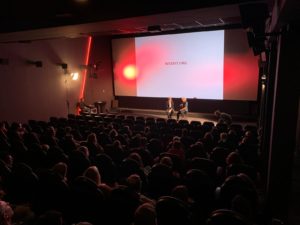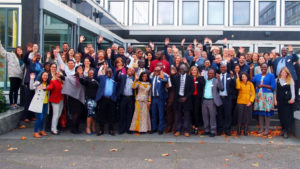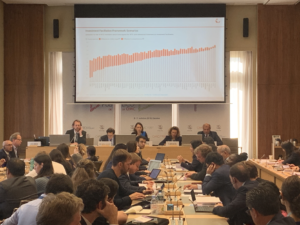Sixteen Researchers from four continents contributed to a whole-day symposium organised by DIE’s Middle East and North Africa team at this year’s DAVO conference.
DAVO – the German Middle East Studies Association – brings together several hundred people each year – this year on 3-5 October in Hamburg. And DIE presented itself as a centre of research on the evolvement of the social contracts in the Middle East and North Africa (MENA). Ishac Diwan (Harvard University) gave a lecture on the effects of insecurity on political values in the MENA, Erin McCandless (New School in New York) on the building of new social contracts in conflict-affected countries, DIE guest researcher Laryssa Chomiak (Centre d’Etudes Maghrébines à Tunis) on the new social contract in Tunisia, Zafiris Tzannatos (Lebanese Center for Policy Studies) on the misinterpreations of the youth bulge in MENA countries and Wael Khatib (Jordan) on the social contract in Jordan.
DIE researchers presented the social contract concept, the rationalisation of social transfer spending in the MENA, the rural social contract and reconstruction, nation building and development co-operation in conflict-affected MENA countries. Other researchers focused on Dubai, Sudan and education in Egypt.



